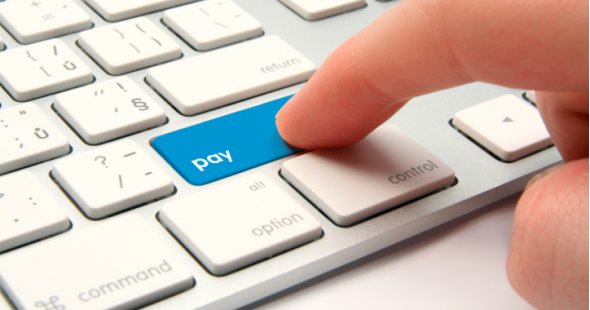Many accountants are throwing away paper checks in favor of digital business payments when it comes time to pay the bills, according to the Rise of Modern Business Payments report prepared by Bill.com, the digital business payments leader. Through a 2018 survey used to prepare the report, more than 460 accounting professionals weighed in on how they pay bills for their firms and clients.
The results of the survey found that paying client and firm bills online is now deeply rooted in the mainstream for accountants and bookkeepers. The survey showed 73% of respondents use ACH payments and online banking to pay bills for clients, more than half reported that they no longer use handwritten checks, and paper checks both handwritten and computer-printed ranked at the top of the list for methods of payment used less this year compared to last year. Only 6% of respondents said they don’t use any form of digital payments to pay bills for clients.
At the same time, emerging digital payment options are gaining traction in accounting. Of the firms surveyed, 3% said they use virtual credit cards more often than last year to pay their own bills, and 7% said their use of virtual cards remains the same as last year. Likewise, 1% said they use cryptocurrency more this year than last year to pay their own bills, and 2% said they have maintained the same frequency of usage for cryptocurrency compared to the previous year. For client bill payments, this trend has lagged slightly behind accounting firm’s own payment choices, with less than 1% of accounting professionals saying they use cryptocurrency to pay client bills more than last year and 3% saying the same for virtual credit cards.
“Payments are rapidly evolving for accounting firms, as digital payments are now more often used than paper checks,” according to Vinay Pai, senior vice president of engineering for Bill.com. “Enterprising accounting firms have already begun to work with new digital payment methods like cryptocurrencies and virtual credit cards, which gives them valuable experience and competitive advantages as these forms move towards mainstream acceptance.”
Preference for digital business bill payments
Respondents ranked the three main reasons they prefer digital bill payment as the increased speed of processing and reconciling payments (70%), the ease of working with an all-digital system (69%), and the ability to handle digital payments anytime, anywhere (68%). Almost half of the respondents said that they recommend digital business bill payments because digital payments help them better manage clients’ cash flow and give them more data to act as trusted advisors.
The preference is paying off for firms in terms of time savings. A similar survey conducted by Bill.com in 2015* found that 14% of firms spent less than an hour a month per client handling bill payments. For 2018, that percentage of similar responses more than doubled to 33%, signaling that the efficiency of digital bill payments and associated features such as automation, audit trails, online collaboration and mobility, has an operational impact for the surveyed firms.
The number one reason the accountants surveyed are offering bill payment services: Clients want it. The 2018 survey revealed that 74% of respondents offer bill payment services because their clients request it.
Complications of cross-border bill payments
Respondents reported that nearly half of their clients work with vendors overseas and indicated that their leading international payment challenges include high banks fees for international payments, payments taking too long to make, and difficulties calculating conversion rates – all problems that digital bill payments can help address. According to another Bill.com survey** of SMBs, accountants should expect an increase in the demand for international payments as technology continues to make it easier for their SMB clients to expand globally.
Visit here to download the Rise of Modern Business Payments report.
Thanks for reading CPA Practice Advisor!
Subscribe Already registered? Log In
Need more information? Read the FAQs
Tags: Digital Currency




